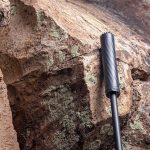Orion The Hunters' Institute, a nonprofit organization dedicated to upholding hunting by providing intellectual leadership on hunting-related issues, said recent legislation passed in Vermont jeopardizes the public's right to collective ownership of wildlife.
Orient said that in the final days of Vermont's 2010 legislative session, language known as the Nelson amendment was inserted in the appropriations bill (H.789 Sec E.702.1), which changed the status of native deer and moose enclosed on a captive shooting facility from the public domain to private ownership.
“The Nelson amendment violates 2,000 years of evolving law, which holds that live wild animals are not owned by individuals. Instead they are held collectively by all,” said Eric Nuse, executive director of Orion – The Hunters' Institute. “In North America, federal, state and provincial governments are responsible for managing wildlife and their habitat on public lands. This public trust gives all citizens the opportunity to enjoy these natural resources, which includes fishing, viewing and hunting.”
Orient said the principle of wildlife belonging to everyone is “vastly different from the centuries-old European model where only nobility and the very wealthy were allowed to hunt. However, when Vermont's Green Mountain boys helped defeat the English during the Revolutionary War, wildlife was transferred from the King to the new state and federal governments and thus to the people.”
Since then, a series of Supreme Court rulings have firmly established the public trust as it relates to wildlife. The public trust doctrine of wildlife is a bedrock concept of the North American Model of Wildlife Conservation and is why this country enjoys the greatest diversity, quality, and quantity of game animals and other wildlife in the world.”
The Vermont legislation was reportedly passed to save a celebrity game preserve moose known as Pete from being culled. Rules governing captive-hunting facilities were adopted by the Vermont's Fish and Wildlife Board, and stipulated game preserves could not have any moose or white-tailed deer in their enclosures as way to protect wild herds from chronic wasting disease, tuberculosis and other diseases carried by captive animals.
“As trustee, the Vermont Fish and Wildlife Department's duty is to look out for the best interests of the state's wildlife on behalf of its citizens,” said Nuse. “Fulfilling that mandate is exactly what the Vermont Fish and Wildlife Board attempted to do in its 2009 rule on the operation of captive shooting facilities; and it is exactly what the legislature violated with the passage of the Nelson Amendment.”
The Nelson Amendment of H.789 contains language that transfers regulatory authority of illegally taken native deer and moose from the Vermont Fish and Wildlife Department to the Vermont Department of Agriculture and permits an individual citizen to own and profit from those wild animals that rightfully belong to all Vermont citizens.
“This giveaway of public wildlife resources to a single individual for personal gain threatens wildlife management in Vermont and beyond,” Nuse said. “To change this management system, just to solve a short-term problem without any debate or input from the public and the professionals at the Fish and Wildlife Department, is reckless governance and an abdication of the responsibility and duty of a trustee. We must now clearly tell our government that we fully expect it to live up to its fiduciary duty as trustee and return the management of all our native animals to the Fish and Wildlife Department.”
Orion – The Hunters' Institute's board said it is especially concerned the process of transferring ownership of wildlife to an individual was not transparent. Transparency is one of the principles that must apply to alienating public trust, as outlined in attorney James H. Goetz's memorandum on the public trust doctrine, which was prepared in 2004 for Orion – The Hunters' Institute.
“Clearly the principle stating the process must be transparent was not met by the legislature in this case. No public hearings were held, the Fish and Wildlife Department and the Agency of Natural Resources officials were kept in the dark,” Nuse said. “The Fish and Wildlife Board's process was open and transparent. Using a long series of public hearings and scientific testimony, they rejected the solution included in the Nelson amendment. They said it was not consistent with the public trust and found that the impairment to the beneficiary was substantial.”
The Orion blog at Fair Chase Hunting Blogspot has additional information.















